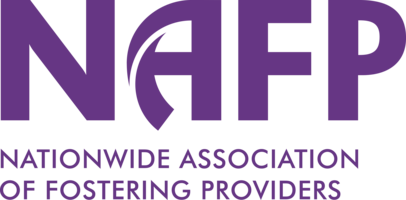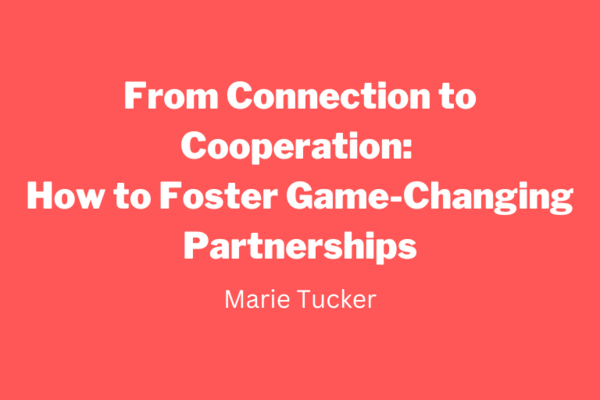I’ve recently been chairing the new regional partnership meetings for NAFP. These are regular opportunities for local authority commissioners and IFAs to come together and share knowledge and understanding of what’s happening in the fostering sector at a local, regional and national level. We’ve also been using the time to share messages from practice meetings and events in an aim to strengthen those important bridges between operational practice, commissioning and procurement. Although early days, we’ve already found that lights are being shone on areas that both local authority and providers are keen to learn more about. This is leading to an increased appetite for more meaningful dialogue and since the partnership meetings have started, we’ve seen an increase in local authority colleagues and consortia leads reaching out to NAFP asking for advice and suggestions on how provider events can be more meaningful. We’ve therefore pulled together some of the common messages we’ve heard from members over the years regarding ‘what works well’.
1. Should we have an in-person or online provider event?
The short answer is that it very much depends on purpose and agenda. Whilst everyone recognises the immense benefits of meeting in person, there’s undoubtedly a need to ensure meetings are efficient and effective. If you expect to be discussing strategic matters, commissioning and contracting, then virtual events are often preferred by most due to the fact that individuals in relevant roles can be living anywhere in the UK and so physical attendance may be difficult. If the event will focus on operational practice, then an in-person event may be preferred to support and strengthen the relationships of those who work together on a regular basis. We’ve even seen some examples of hybrid events with online sections for those further afield, some in- person exercises and the introduction and closing remarks targeted to all. These can work fairly well with good technology and an experienced chair. Regardless of how meetings are facilitated we advise that providers are given as much notice as possible. A draft agenda should always accompany this notice so that, early on, IFAs can determine the most appropriate person/s to attend.
2. What’s the best way to inform NAFP members about a provider event?
This depends somewhat on whether your event is for framework providers or for a wider audience. Sending the invitation to your list of framework providers is essential for framework related events, but always bear in mind that sometimes roles will change and sometimes, for one reason or another, it can take time for communication to reach the right person in an IFA. NAFP has a weekly bulletin and local authority colleagues are welcome to send us information about upcoming events and also links to any portals or materials that you’d like to reach our members. The NAFP members bulletin is well used by providers to make sure they are aware of collaborative opportunities. If the planned event for framework providers only, please make this explicit. Again, a decent notice period is so important as many IFAs have meetings and events booked up to a month or more in advance. If you want to check if NAFP are aware of any events or meetings that may clash with yours, feel free to get in touch with us to check.
3. How long should events last?
This can depend on how engaged providers feel, but generally our members tell us that online events should last for a maximum of 2-2.5 hrs, be well planned, robustly chaired and with sufficient breaks incorporated. We’d suggest that in-person events can be scheduled for longer periods, but please consider that some attendees may live several hours away so avoid starting before 10 am and steer away from those Monday mornings and Friday afternoons.
4. Should we have local, consortia or regional events?
Once again, it will very much depend on the purpose and agenda. There are already a wide range of meetings, events and sessions that providers need to attend and they will need to consider how to best prioritise their time. The vast majority of providers work with numerous local authorities and it can be unrealistic to expect providers to attend several individual events. If different local authorities in a region facilitate provider events with similar agendas and discussions, it is understandable that IFAs would wish to limit these repeated experiences. If several local authorities in a region wish to consult with IFAs on the same topic, then multi-authority events are often more efficient and are usually preferred.
5. What should we consider when planning the agenda?
This will depend on whether your event is in person or online. If in person, we strongly advise that presentations are limited and that ample time is given to allow both focused discussion, collaborative exercises and natural networking. For online events, having a mix of short presentations, facilitated sessions and breakout groups is good. For both online and in-person events we advise the following:
- Ensure the agenda is meaningful. Consider common feedback you have received from providers and ask providers what areas they would like a focus on.
You are more than welcome to contact NAFP to hear about the issues IFAs are raising in the relevant regional partnership meetings, in member practice meetings and directly with us. We maintain an overview of the key issues for our members in each region and are more than happy to advise on what we feel will be valuable for both members and commissioners based on our discussions with them. - Ensure that there is opportunity for provider messages to be shared with commissioners. Affording time for this to be planned in advance. This evidences that the event is just as much about listening to providers as it is about informing them. Messages may be shared though inviting providers to lead a session, asking NAFP to deliver a presentation, sharing results from surveys etc.
- Don’t try to cram in too much! Some of the best feedback we’ve heard from members is when an event has focused on just one or two topics and sufficient time allowed for rich discussion.
- Our members attend events across the country and sometimes receive the same information or even find themselves sitting through the same presentation. NAFP can sometimes advise on which topics may be best avoided where we are aware that these have been well covered in other events which have been well attended.
- Don’t be afraid of fun! In a world where many people spend a lot of time at desks, the opportunity to do something a little different is often very welcomed! Whether this is a fun exercise at an in-person event or a creative online icebreaker!
6. How do we encourage participation and engagement?
Aside from early notice, meaningful agendas, considerate scheduling, effective IT arrangements /convenient locations, IFAs also tell us that the following aids participation and engagement:
- Our members tell us that they are far more likely to engage where the person facilitating the event is engaging, fun, confident, knowledgeable and has good interpersonal skills.
- Dynamics amongst participants can vary so our members really appreciate being able to choose whether to contribute to a discussion anonymously or directly. If using Teams, Zoom, Google meet or other platform, see if there is an option for people to contribute to the chat anonymously. Tools like SLIDO or Mentimeter can work particularly well, but do need to be used effectively to get the most out of them.
- Sometimes IFAs may be cautious about raising specific issues due to concern about how their position or opinion may be interpreted. Some members tell us that they appreciate NAFP being invited to provider events. If NAFP is present, we can introduce the issues that we know are important to our members. We have learnt from experience that, once an issue has been raised it then becomes easier for providers to contribute to the discussion.
- IFAs also tell us that multi local authority and provider joint events work well where there is a fair balance of providers and local authority representatives. Having a range of local authority colleagues who interact with providers in their roles is important. It aids collaboration and the sharing of risk and responsibilities.
- Members tell us that some of the best events they have attended are those where senior leaders and/or Directors of Children’s Services are present throughout. Seeing those at the helm of corporate parenting showing an eagerness to build trust with partners is immensely powerful.
- Encouraging everyone to keep cameras on and having some informal discussions at the start of an event can help create a more relational feel, this leading to richer discussion and contributions.
7. What is important to know/do at the end of a provider event?
Providers want to feel confident that the time they spend at events has been meaningful. For their organisations, for local authorities and ultimately for carers and children. Organisers should:
- Ensure there is a good summary at the end of the event. Reflect on the purpose of the day and what has been achieved. List the agreed actions going forwards detailing the responsibilities for these and any timescales.
- Ensure that providers have felt listened to. Having a Slido/mentimeter (or similar) session at the end of an event is a good way to check if attendees feel confident that key messages have been taken on board.
- If an event has not gone as planned, acknowledge what could have been done differently. Reflection, honesty and openness will help build relationships, not hinder them.
- Be clear about next steps and let providers know about any arrangements for providing them with information from the event. Also let them know how and when they will be informed about the progress of any agreed actions.
- At the end of an event or very soon afterwards, provide a brief survey (which attendees can complete anonymously) asking for views about how well the event met its objectives. Seek constructive feedback, but also seek compliments and please consider sharing these with us so we can help to share positive lessons with other consortia and local authorities.





